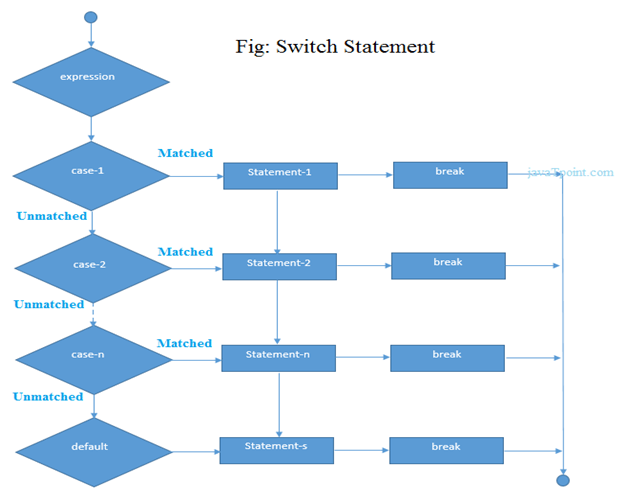C++ switchThe switch statement in C++ is a potent control structure that enables you to run several code segments based on the result of an expression. It offers a sophisticated and effective substitute for utilizing a succession of if-else-if statements when you have to make a decision between several possibilities. The C++ switch statement executes one statement from multiple conditions. It is like if-else-if ladder statement in C++. 
C++ Switch ExampleOutput: Enter a number: 10 It is 10 Output: Enter a number: 55 Not 10, 20 or 30 Features of Switch Statement:There are several features of the switch statement in C++. Some main features of the switch statement in C are as follows:
Limitations of Switch StatementThere are several limitations of the switch statement in C++. Some main limitations of the switch statement in C are as follows:
Conclusion:In conclusion, the C++ switch statement is a flexible construct that makes it easier for programs to handle a variety of scenarios. Its explicit case labels and succinct syntax make code easier to comprehend and maintain, especially in situations when there are many possible outcomes. The switch statement improves the organization of program logic by offering a direct mapping between cases and actions. The switch statement has advantages over an if-else-if ladder in terms of performance since the compiler can optimize it for quicker execution. Developers should be aware of its restrictions, such as the need for integral or enumeration expression types and constant case values. It is advised to provide a default case in the switch statement to manage mismatched circumstances and use it efficiently and gently. Programmers may take advantage of the switch statement's advantages to create better organized, effective, and understandable C++ code by following best practices and comprehending its intricacies.
Next TopicC++ For Loop
|
 For Videos Join Our Youtube Channel: Join Now
For Videos Join Our Youtube Channel: Join Now
Feedback
- Send your Feedback to [email protected]
Help Others, Please Share









